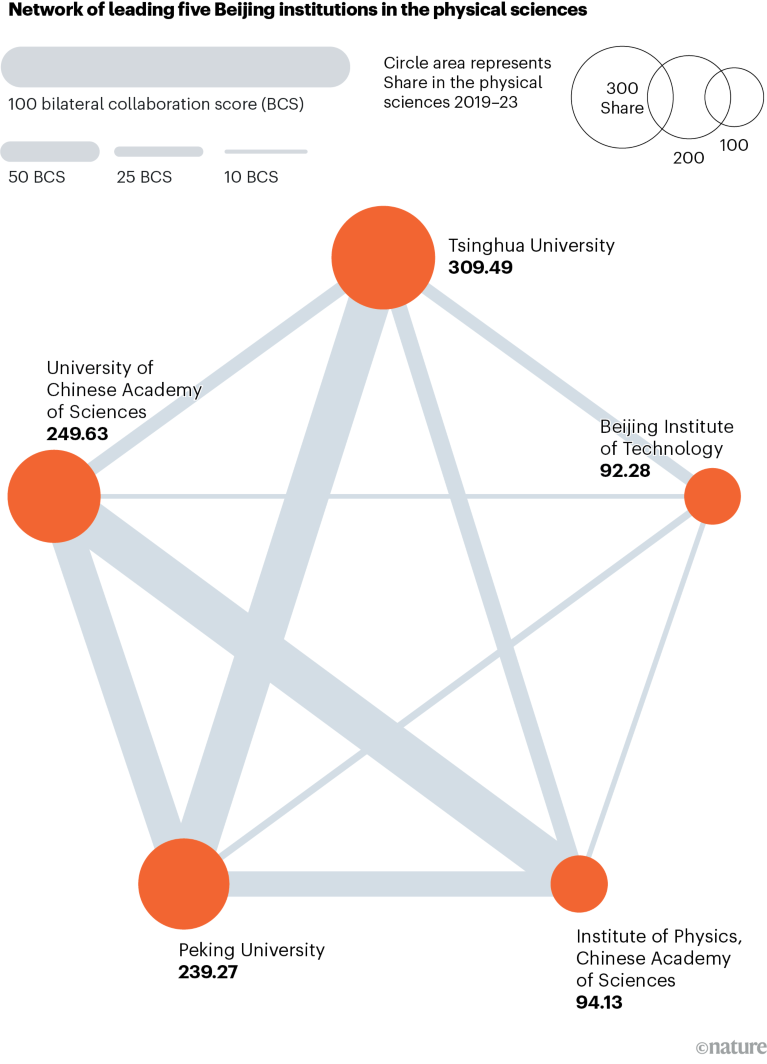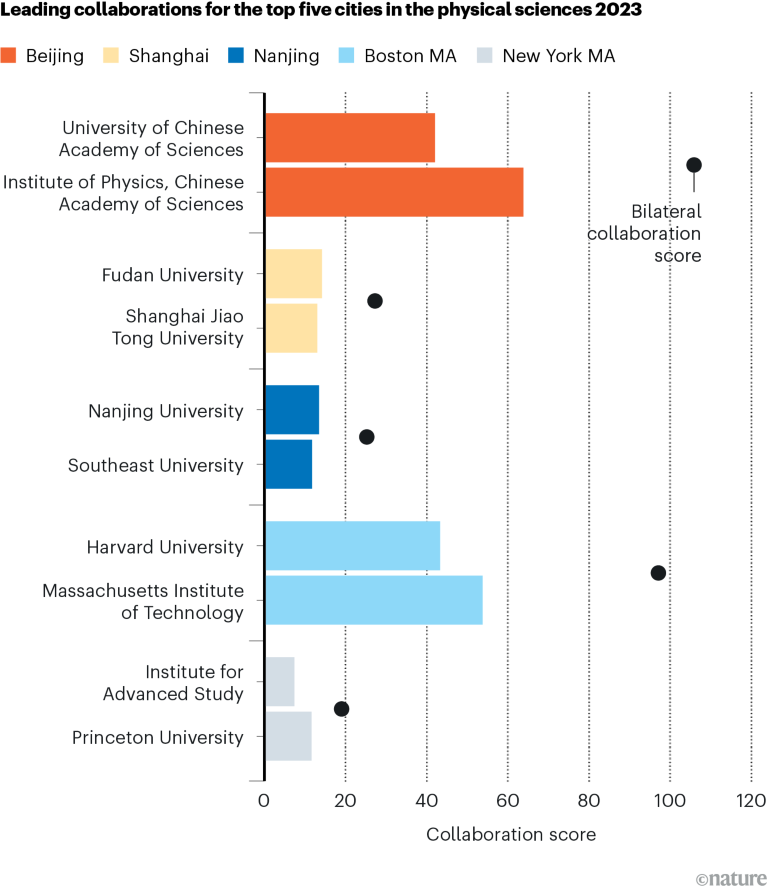A strengthening research climate has seen Chinese cities rise to take the top three spots in this year’s leading science cities for physical sciences, as the eastern city of Nanjing climbs above both Boston and New York for the first time. Nanjing, China’s 13th largest city by population size according to the country’s 2020 census, punches well above its weight in the natural sciences, with the city’s main academic hub, Nanjing University, now ranked 5th globally for its physical sciences Share in the Nature Index.
However, it is Beijing — home to facilities such as the Beijing Electron–Positron Collider II and the High Energy Photon Source, due to be completed at the end of 2025 — which has once again extended its lead in the field. It has a Share that is more than double that of second-place Shanghai and around three times greater than the US leader, Boston. From 2019 to 2023, the adjusted Share of China’s capital city has grown by around 35%, and now accounts for 19.5% of China’s total physical-science output.
As China’s current five-year development plan prioritizes areas such as space exploration, quantum technologies and artificial intelligence, it’s unsurprising that the physical-research outputs of several Chinese cities have significantly increased in the past year, with the country now holding six of the top ten leading city spots. Out of the five fastest-rising cities in the subject, Hangzhou, located to the southwest of Shanghai, was the top rising city for percentage change, its physical-science research growing 135.2% in the past five years. This was probably bolstered by functional materials and nanotechnology research at Zhejiang University, which is now ranked 7th globally for physical-science output among academic institutions.
Beijing’s growth is partly a result of strengthening collaborations between research institutions and universities within the city. Two strong collaborations lead Beijing’s research cluster: the University of Chinese Academy of Sciences and the Institute of Physics, CAS; and Peking University and Tsinghua University.

Source: Nature Index; Data analysis: Aayush Kagathra; Data visualization: Tanner Maxwell and Simon Baker
The partnership between the University of Chinese Academy of Sciences and Institute of Physics, CAS, also scores highly when compared with collaborations in other leading cities for physical sciences. It has a higher bilateral collaboration score (BCS), of 105.82, than the long-established partnership between Harvard University and the Massachusetts Institute of Technology (MIT), both located in the Boston metropolitan area (MA) in Massachusetts (BCS 97.04).
Boston and the New York City MA have often had relatively similar Shares for their physical-science output in the Nature Index. However, this year has brought a shift, with New York experiencing a 9.5% decrease in its adjusted Share, causing it to fall below its US counterpart on the leading cities list. The strong ties between Harvard and MIT might have contributed to Boston’s slight increase in its year-on-year Share, with the collaboration far exceeding that of the leading partnership in the New York MA, between the Institute for Advanced Study and Princeton University.

Source: Nature Index; Data analysis: Aayush Kagathra; Data visualization: Tanner Maxwell and Simon Baker
This article is part of Nature Index 2024 Science cities, a supplement produced with financial support from the Beijing Municipal Science & Technology Commission, Administrative Commission of Zhongguancun Science Park. Nature maintains full independence in all editorial decisions related to the content. For more information about Nature Index, see the homepage.
